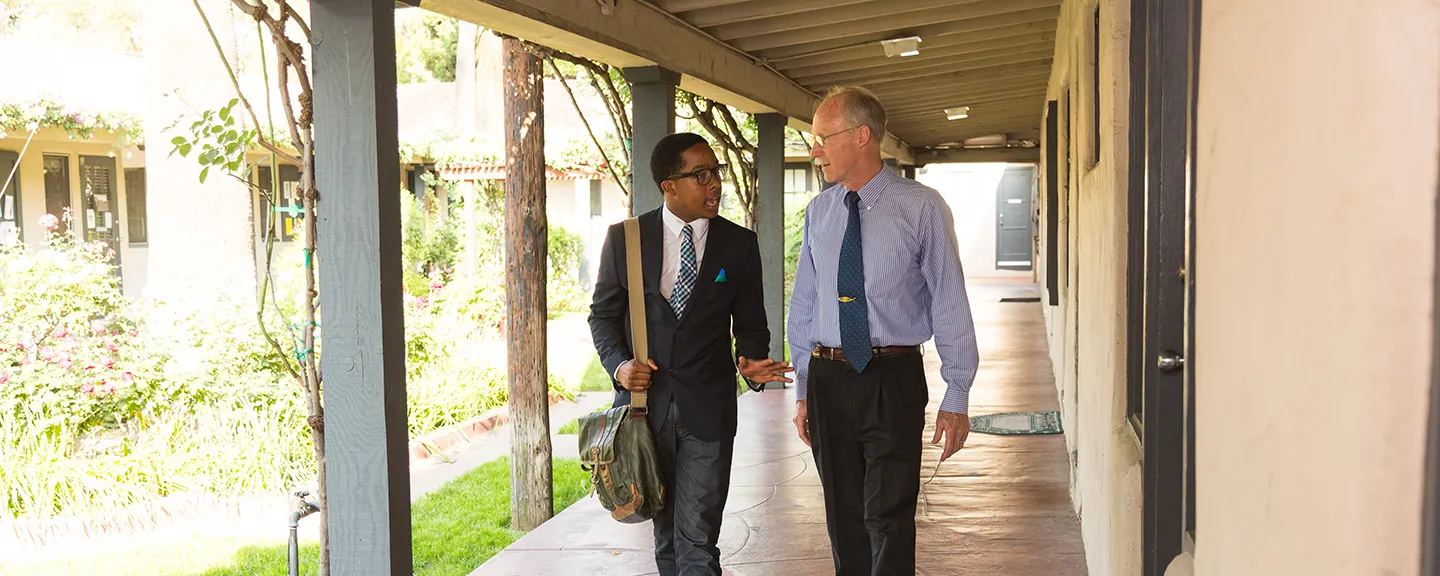- Home
- >
- APU Articles
- >
- News Article
Why You Should Have a College Mentor (and How to Find One)
April 01, 2021 | Written By Tobin Perry

This type of relationship can be a game-changer for your college experience, and for your career. In fact, a 2018 Gallup survey showed when college graduates have mentors, they’re twice as likely to be engaged at work.
While it’s true everyone needs a mentor, these connections are particularly important during specific periods of a person’s life. Mentors often provide the extra boost students need to thrive during college (and after). Here’s what to know about college mentors and some advice for finding one.
Why a College Mentor Is So Important
One reason students don’t make the effort to find a college mentor is because they don’t realize the importance. Truth be told, it may be one of the most important connections a student makes during college.
“A mentoring relationship can be a dynamic and insightful experience for college students who, in this stage of life, are laying the groundwork to identify and pursue their purpose,” said Marie Carasco, PhD, an assistant professor in Azusa Pacific University’s School of Business and Management.
Mentors can help college students explore new opportunities. Faculty mentors often have access to experiences students aren’t aware of and can help point them in the right direction once they understand a student’s aptitude.
Additionally, Kelly Roth, MA, director of APU’s Office of Spiritual Life, believes college may be a particularly significant time for students to explore spiritual mentoring.
“As students are learning, as they’re applying themselves, it brings up life questions,” Roth said. “Having someone to walk alongside as they’re discovering new things about the world, about themselves can only enhance their spiritual life. We’re integrated beings. We’re not just mind, body, or spirit. We’re all of those things together.”
How to Find a College Mentor
It’s likely easier than you think to find an effective mentor during your college years. For students looking to find a faculty mentor, Carasco recommended requesting a phone call or online meeting with the potential mentor.
Before the meeting, have a clear idea of what you want to accomplish through the relationship. Then, ask whether that mentor would be able to provide support in those areas and has the availability to help.
It’s important, Carasco said, to find a mentor with whom you’re comfortable.
“This mentor doesn’t have to be in the student’s major,” Carasco said. “Although there is a great benefit to having someone as a mentor who is in the field that the student is studying, the relationship dynamic is more important than the association with the field.”
APU can help you find mentors during college through a number of programs. For example, the undergraduate discipleship mentoring program can provide you with an opportunity to get support from another Christian as you discuss faith and life, pray with one another, and grow together.
When you sign up for the program, the Spiritual Life will work to try and connect you with a mentor who shares your experiences and interests. These mentors will be faculty, staff, spouses of APU employees, seminary students, peers, and members of local churches. Students can even connect with these mentors remotely through Zoom or over the phone if they can’t get together in person.
For graduate and professional students, APU offers a peer mentoring program. To get connected, students can reach out to the university’s Office of Spiritual Life, which works to try and match students with similar interests, family life, and programs. Those interested in participating can contact the office to sign up as a mentor or mentee.
“As we create programs and services related to advocacy, access, and affinity to meet the unique needs of graduate and professional students, we believe that the peer mentoring program offers support and encouragement for students inside and outside the classroom,” said Matt Browning, EdD, director of graduate and professional student engagement.
Interested in finding out more about mentoring programs at APU? Contact the Office of Spiritual Life.